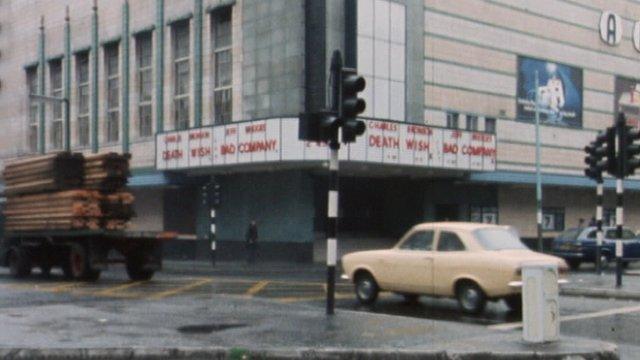Cinema: Swansea-set 1960s film attracted the attention of MI5
- Published
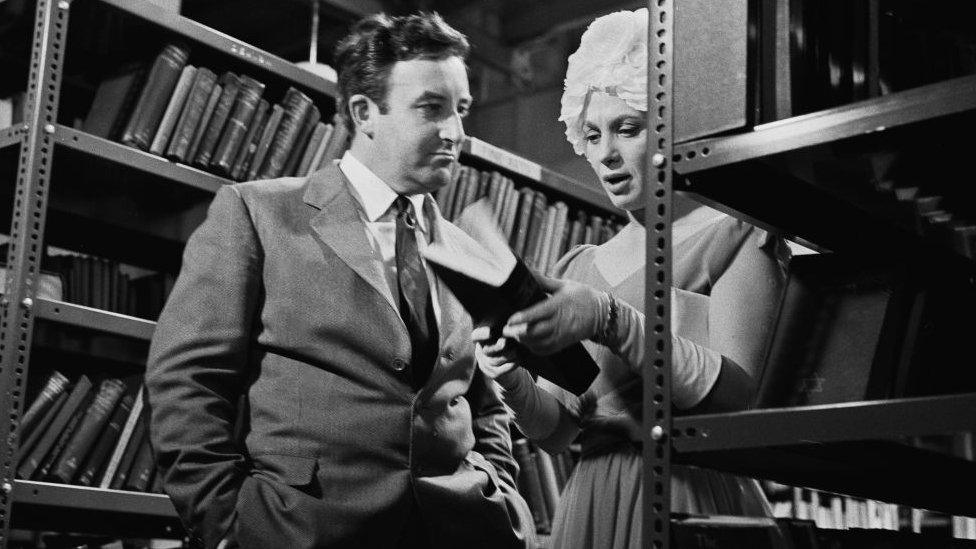
Peter Sellers' Swedish co-star Mai Zetterling was suspected of being a communist by British intelligence operatives
Sixty years ago, the streets of Swansea were filled with stardust, controversy and espionage.
Using it as the fictional setting of Aberdarcy, the comedy film Only Two Can Play was the third highest-grossing film in cinemas in 1962.
It starred Peter Sellers and the Swedish actress Mai Zetterling, with a young Richard Attenborough and the Welsh actor Kenneth Griffith.
Based on the Kingsley Amiss novel That Uncertain Feeling, it not only courted controversy in front of the camera - as the first comedy to be awarded an X classification, external by the British Board of Film Censorship - but it was also closely monitored by MI5.
Zetterling was thought to have communist sympathies.
Only Two Can Play concerns a professionally frustrated provincial librarian (played by Sellers) being tempted towards marital unfaithfulness by the wife of a councillor (Zetterling) who is chairman of the libraries committee.
It wasn't the first film to receive an X-rated certificate - several horror and erotic movies had limited showings in Soho sex cinemas before that.
Nor was it the first film on general cinema release to receive such a rating - kitchen sink drama Room at The Top, set in Bradford, achieved that in 1959.
However, it was the first light-hearted film to receive such a classification, but Welsh film critic Gary Slaymaker said it now seemed very tame.
"It would probably be a PG or 12 by modern standards, the most titillating thing the censors could find against it was that Sellers saw the reflection of a woman's naked back in the mirror."
He contrasts it with Twin Town (1997), set in the same location.
"They depict many of the same places, but in very different feels - there's none of the violence or sex of Twin Town.
"Yet both are time capsules of Swansea as it was at the point of filming - the cars and houses etc."
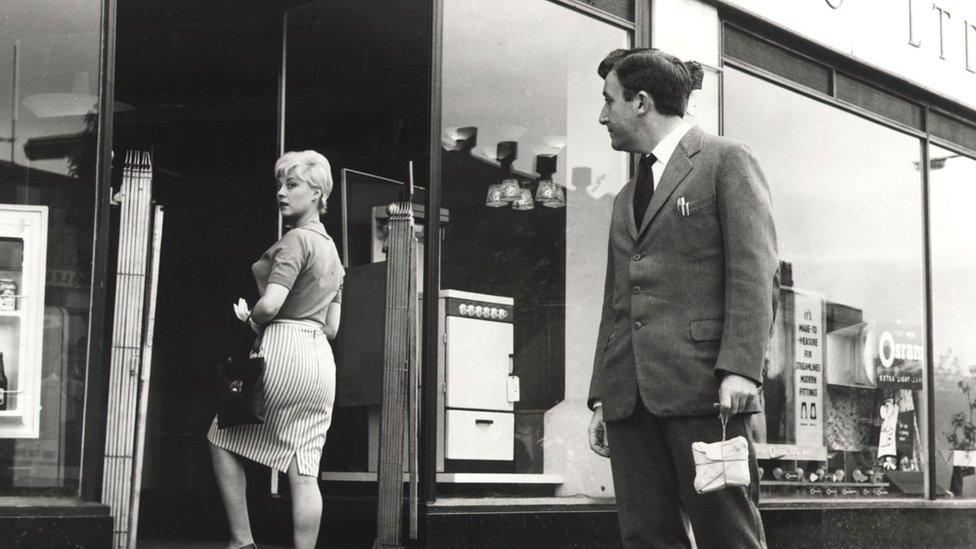
Filming took over the streets of Swansea in 1962 and people gathered to catch a glimpse of the action
In 1962, the streets of Swansea were packed with people hoping to catch a glimpse of naughty action.
Historian Geoff Brooks said: "It's still a talking point in pubs, certainly for people of my era.
"There's lots who can remember the filming, and how they gathered round for a sight of the stars."
Prof Martin Johnes, historian at Swansea University, said this was a sign of the city's changing face.
"The crowds were huge, some supporting the film, some protesting against it, either way it was something which was going to stay in our history.
"Swansea was something of a Petri dish - the most studied post-war city of its kind, so when a film came out from here which pitted a working class boy trying to advance himself... then the mobs got all over it."
For some, change wasn't coming quickly enough.
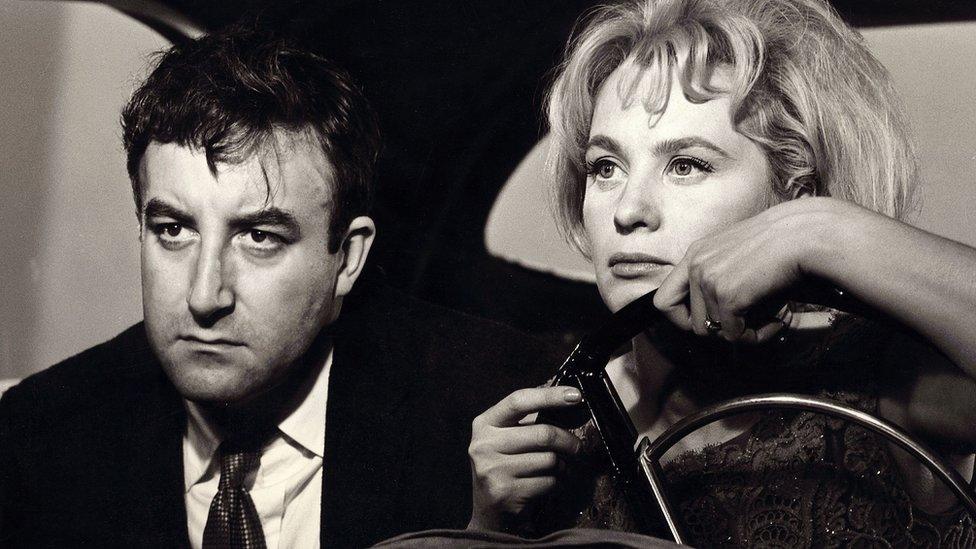
Only Two Can Play is about a provincial librarian (Sellers) and a councillor's wife (Zetterling)
Zetterling was said to be living in "a communist co-operative household" in Sevenoaks, Kent, so among the crowds were MI5 agents.
Unsealed in 2008, her files noted she had embarked on several affairs with men, including US actor Tyrone Power and Herbert Lom, best known later for his role as Inspector Clouseau's long-suffering boss in the Pink Panther films.
Prof Johnes said it was all a part of the times: "Mixed up with the Profumo affair and McCarthyism in the States, there was much fear around celebrity left-leaning and the damage it could cause."
Only Two Can Play was only a moderate box office hit, though it launched Zetterling's career as she went on to become a cutting-edge director exploring themes of homosexuality before her death in 1994.

HOW THIS BLIND GIRL...: How will Ceri manage returning to the dating scene?
BAFTA CYMRU WINNERS: Celebrate the best television from Wales

- Published7 December 2022

- Published1 March 2020
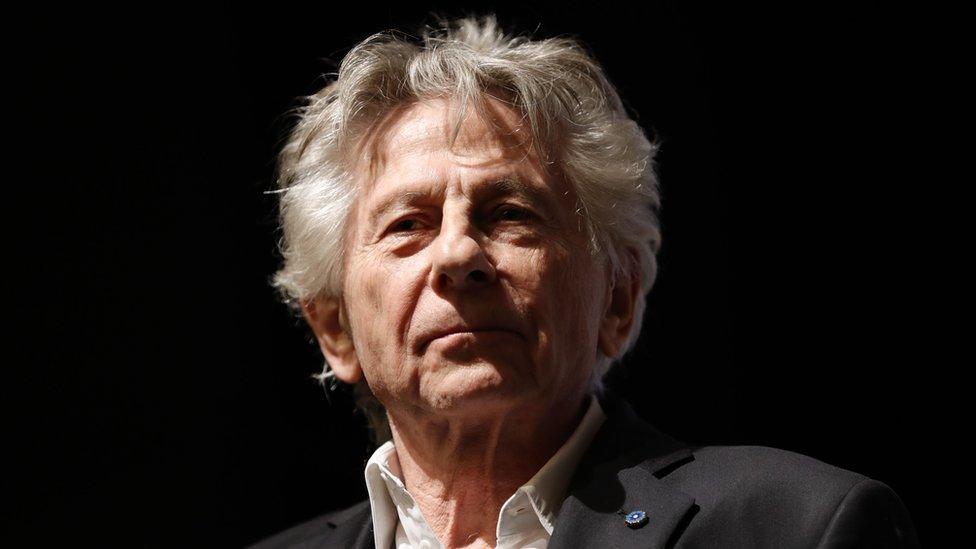
- Published2 February 2015
